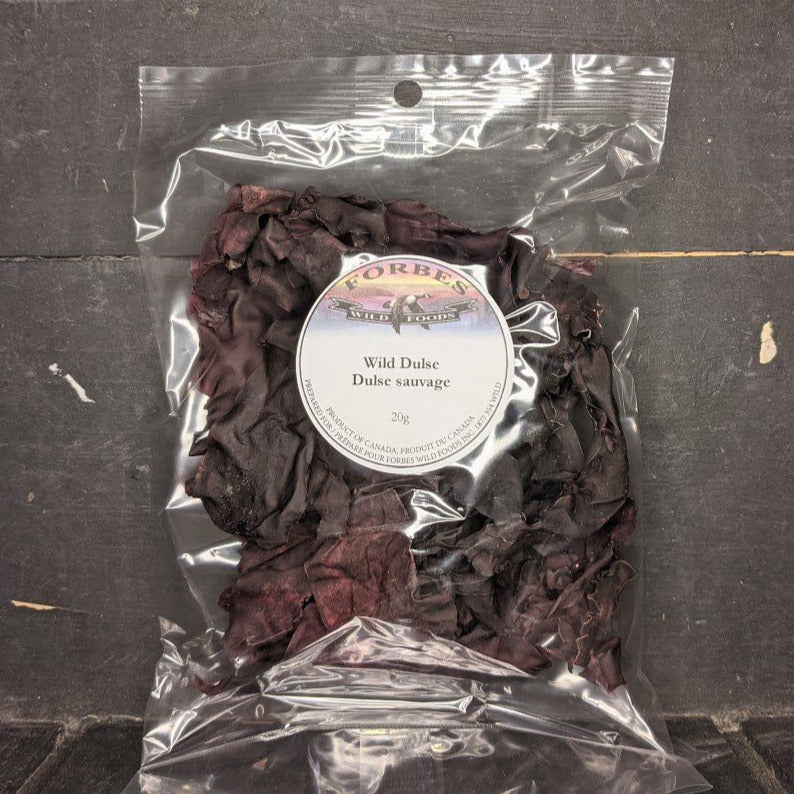After soaking in water, dried Dulse has a soft texture and a fairly strong savoury-sweet flavour. It is excellent in vegan versions of clam chowder or potato fish cakes. With its huge hit of umami, Dulse reminds some tasters of bacon. This inspires many vegan bacon recipes, some of which are as simple as coating dry Dulse strips in vegetable oil and frying until crisp.
Like all sea vegetables, Dulse differs nutritionally from plants growing on land. Sea vegetables have a higher content of minerals such as calcium, potassium and iodine. They are also rich in protein, amino acids, iron, vitamins and soluble and insoluble fiber. Dulse is especially high in iron, and has a favourable sodium/potassium balance.
Forbes Wild Foods is a Canadian company that proudly supplies wild, hand-picked foods to restaurants; farmers markets; hotels; gift, food, and health stores; and to individual customers via our online store. All of our foods are sustainably harvested from the Canadian wilderness by trained, knowledgeable pickers. Our suppliers practice progressive harvesting methods -- ones that are both sustainable for its neighbouring plant species and surrounding ecosystem; and for the pickers themselves, whose livelihood is supported by a thriving source of wild foods.
Our specialized pickers (consisting of Indigenous people, women, youth, retirees, farmers, and professional foragers) are usually residents of rural or remote communities who respect the lands that support them. Only those wild foods that grow in great abundance and whose survival is not in danger are considered for harvest. Forbes Wild Foods also works with regional and northern wild food producers to help propagate rare wild food plants by reintroducing them to lands that need remedial attention, such as overgrazed woodlots and pastures.

